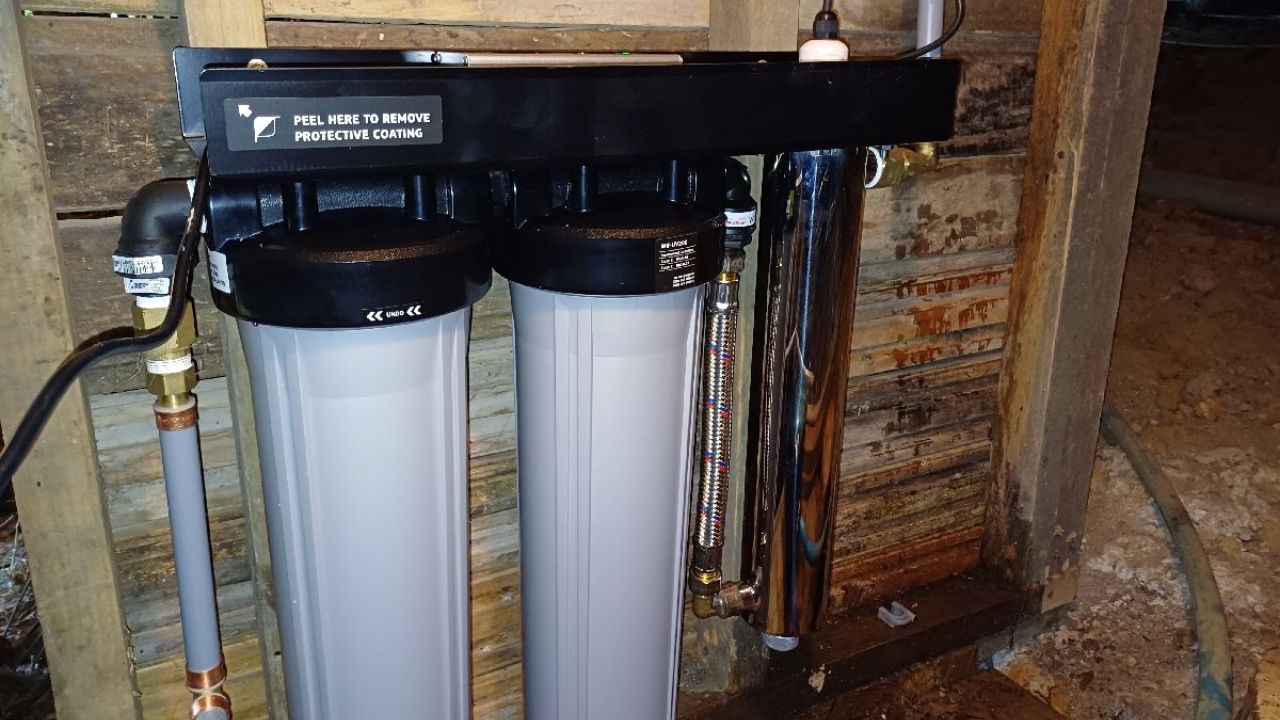Access to clean, great-tasting water is a cornerstone of good health and overall wellbeing. Yet with so many filtration methods out there—activated carbon, reverse osmosis, UV purification, and more—it’s easy to feel overwhelmed. Below, we’ve created a simplified step-by-step guide to help you navigate the process of selecting the perfect water filter system for your home or business.
Figure Out What You’re Trying to Remove
Not all filters address the same issues. Before you start shopping, get clarity on what’s in your water supply:
Tap or Mains Water: Typically treated with chlorine and may contain trace sediments or metals.
Rainwater or Bore Water: Could include bacteria, organic matter, or other contaminants depending on how it’s stored.
A professional lab test (or an on-site analysis) will give you concrete data. If you’re unsure how to arrange a water test, reach out to Citywide Plumbing for guidance.
Decide on the Scope: Single Tap vs. Whole-House
Depending on your goals and your budget, you can either filter water at the point of use (e.g., a dedicated tap in the kitchen) or install a system that treats every drop entering your property.
Point-of-Use Filters: Commonly found as under-sink units, countertop jugs, or inline attachments. Great if your primary concern is drinking and cooking water.
Whole-House Filters: Installed where water first enters the home, covering all taps, showers, and appliances. Ideal if you want comprehensive protection from contaminants, or if you dislike the smell of chlorine when showering or washing clothes.
Explore Different Filtration Technologies
Each filtration technology tackles contaminants differently. Here are a few popular options:
Activated Carbon
- Key Strength: Reduces chlorine, unpleasant tastes, and certain chemicals.
- Ideal For: Households primarily concerned with odd smells or chemical aftertastes.
Reverse Osmosis (RO)
- Key Strength: Removes a wide spectrum of impurities including heavy metals and dissolved solids.
- Ideal For: Those seeking exceptionally pure drinking water.
UV (Ultraviolet) Purification
- Key Strength: Targets microorganisms like bacteria and viruses.
- Ideal For: Rainwater or bore water users concerned about bacterial contamination.
Sediment or Particle Filters
- Key Strength: Traps physical particles such as sand, silt, and rust flakes.
- Ideal For: Properties in areas with turbid water or older plumbing.
Set a Maintenance Plan
Filters aren’t a one-and-done purchase; they need periodic upkeep to stay effective. Before you commit:
- Check Replacement Schedules: Some cartridges may need changing every six months, while others can last years.
- Account for DIY vs. Professional Servicing: Simple under-sink systems can often be maintained by homeowners, but larger or more complex installations—like whole-house or RO systems—might require a plumber.
- Budget for Consumables: Even if a filter is cheap upfront, the annual cost of replacement parts might make it pricier over time.
Compare Pricing and Features
When comparing filters, balance your immediate needs with the long-term picture:
Initial Investment: A simple jug filter may suffice for a small household with relatively safe tap water. However, if you need advanced filtration (like UV + sediment + carbon), expect a higher upfront cost.
Total Ownership Costs: Evaluate how much money you’ll need for replacements and regular servicing. A system that costs more up front but uses more durable filters could be cheaper in the long run.
Look into Certifications and Brands
Filtration systems are often certified by independent organisations that verify performance claims. While not mandatory for every situation, these seals can provide assurance that a product performs to a particular standard. Additionally, choosing an established brand with proven track records in New Zealand conditions can save you hassles down the road.
Seek Professional Advice
Even with all the right research, it can be tricky to navigate the nuances of local water conditions. That’s why it’s wise to consult an experienced professional:
- Expert Assessment: A plumber can identify issues with water pressure, existing plumbing infrastructure, and potential contamination risks.
- Tailored Solutions: Rather than a one-size-fits-all approach, a qualified specialist can match you with a filtration setup that aligns with your unique water needs.
- Correct Installation: Improperly fitted systems can leak or fail. Having a professional handle the installation helps ensure everything is set up for optimal performance.
Pro Tip: Citywide Plumbing offers customised recommendations for Kiwi households and businesses, taking into account local council water standards, typical regional contaminants, and your particular household’s demands.
Ready to Choose?
Selecting the perfect water filter system is ultimately about balancing water quality concerns, budget considerations, and practical household factors. By following these steps—testing your water, determining whether you need a single-point or whole-house approach, exploring filtration methods, planning maintenance, and getting expert advice—you’ll be well on your way to enjoying consistently pure water in every glass.
If you need a hand deciding which system fits your home or workplace, or require professional installation, contact the team at Citywide Plumbing. We’re here to help you secure reliable, high-quality water for everyday living.


